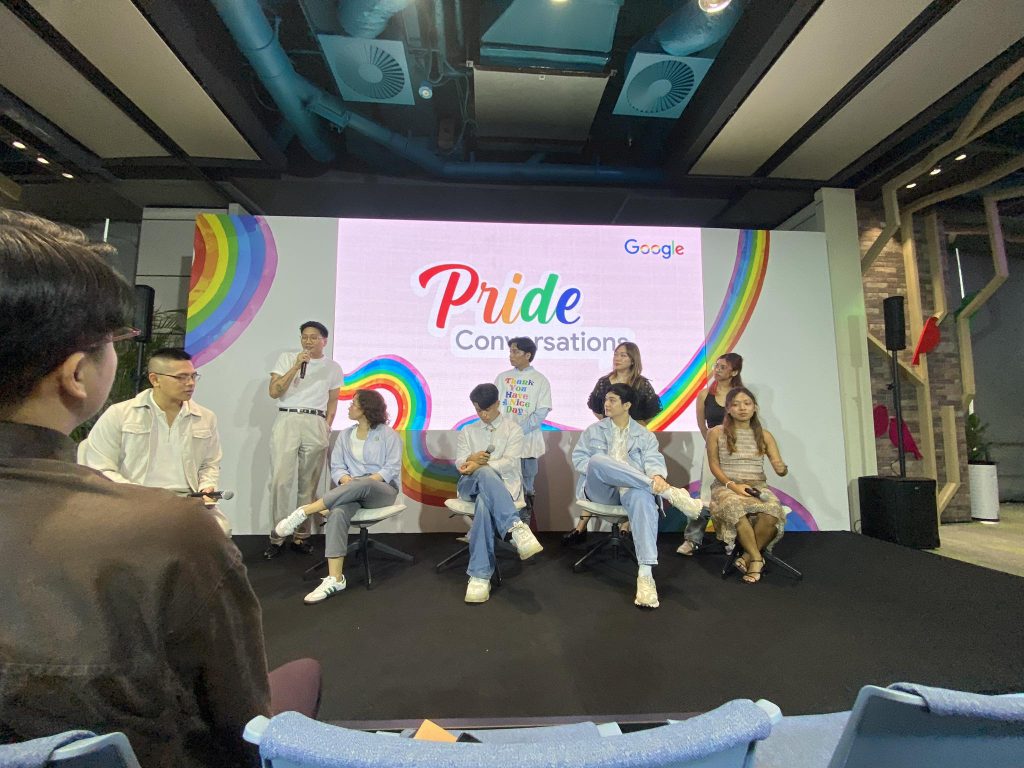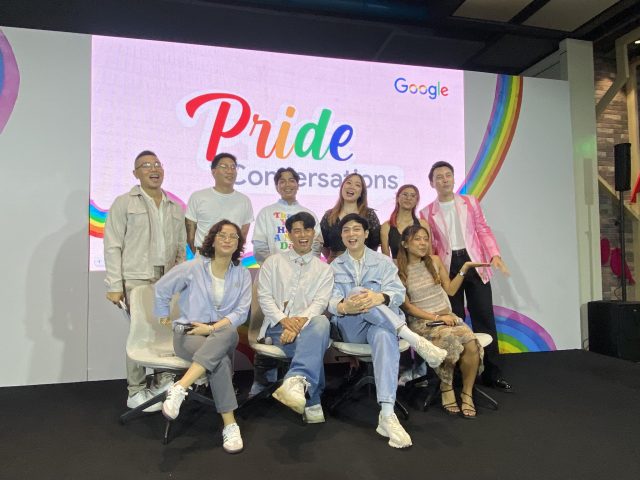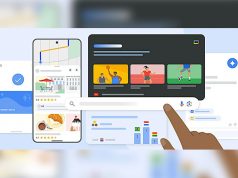Pride is not just about celebration, a statement most members of the LGBTQ+ (Lesbian, Gay, Bisexual, Trans, Queer +) community have continued to echo out to the nation.
Google Philippines on Wednesday held its fifth panel discussion featuring four Filipino social media personalities.
Hosted by comedian and content creator Baus Rufo, “Pride Conversations” covered discussions about coming out, creating an open community and destigmatizing homosexuality in the Philippines.
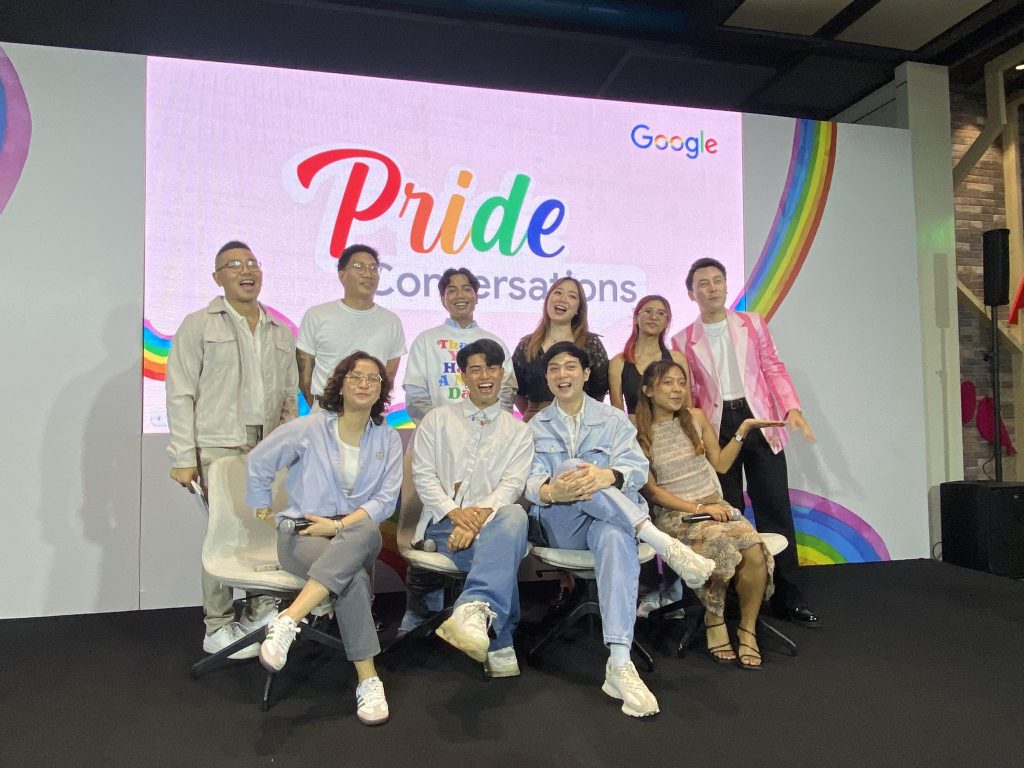
How Pride welcomes conversations
As Google continues to aim for diversity, equity, and inclusion in an otherwise conservative nation, the forum brings forth stories on navigating their sexuality while giving importance to having supportive allies.
This year, Google presented influential panelists and digital content creators Roanne Carreon, Joshua Cruz, Jan Angelo Ong, and Yani Villarosa.
When Baus asked about coming out to friends and families, most of the panel mentioned that while it is important to be true to oneself, they all agreed that coming out is based upon the person’s preference and should not be forced upon.
For instance, Cruz and Ong said that they did not feel the need to come out.
“It’s not about coming out [as part of the LGBT], it’s about letting people in,” Ong stated.
This is where allies showcase their support to the community. During the discussion, Carreon brought her friend, Icoy Rapadas, a food content creator and a “token straight friend” as dubbed by the panel.
For them, allyship does not necessarily base itself on gender, and support doesn’t have go an extra mile.
Safe public spaces for gays and ‘theys’
One of the speakers present was Queer Safe Space PH Co-founder Roanne Carreon. According to her, the law on providing security to the community should be enforced to the public.
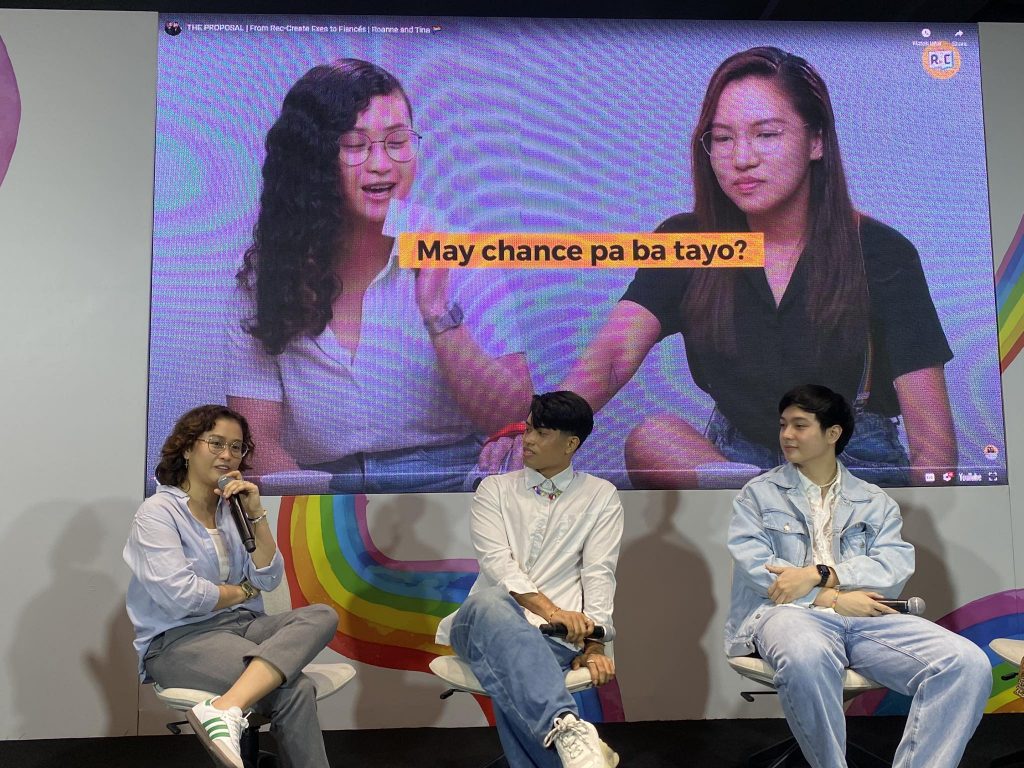
“Protektado na tayo ng batas, may safe spaces eh [We’re protected by the law, so there should be safe spaces],” she said in an interview with Interaksyon.
Republic Act 11313 also known as the Safe Spaces Act or the Bawal Bastos Law prohibits gender-based sexual harassment in public areas, institutions, and even online.
Her partner, Tina Boado, also handles Carreon’s non-profit organization. One of their flagship advocacies, the Safe Space Project, allows them to provide free training to certain businesses to be more SOGIE (Sexual Orientation, Gender Identity, and Expression) friendly.
“Nag-pa-partner kami sa local food establishments and nag o-offer kami ng SOGIE trainings sa mga employees nila. [We’re partnering with local food establishments and we offer SOGIE trainings to their employees],” she said.
“Then gagawa sila ng projects related sa mga natutunan nila from the training like pag implement ng pronouns sa nameplates nila, yung iba naman may gender-neutral bathrooms [Then the businesses will create projects based on what they’ve learned from us like implementing pronouns in their nameplates, while others have gender-neutral bathrooms],” she added.
Carreon also highlighted the importance of their program, stating that the country continues to face gender discrimination, prohibiting members of the LGBT+ community from using the gendered comfort room or being misgendered by other people.
“Nag-a-apply na kami sa mga barangays para mag-conduct kami sa SKs (Sangguniang Kabataan) para magsimula naman sa youth and LGUs (local government units). [We’re applying to various barangays to conduct this program to SKs so we can begin teaching the youth and the LGUs].”
What Google Philippines does
Aside from hosting panel discussions, Google Philippines showcased just how welcoming they are to people of all genders and sexualities.
Mervin Wenke, Google Philippines Communications and Public Affairs head lauded the efforts of his firm in terms of inclusivity.
“In our company profiles we have put [the employees] preferred pronouns so that they’re recognized during meetings, and we also have life-changing benefits,” he said as an example.
Wenke’s life partner is enrolled in Google’s life and health insurance, a benefit that is usually given to married couples and children.
For him, the insurance benefit not only extends the rights normally given to the heterosexual community but also to LGBTQ+ couples even without technically getting married.
The Philippines has yet to allow same-sex unions or marriage, as the Family Code only states man-to-woman partnerships.
“Because kung puro pride celebration lang tapos walang laman or walang programa para sa mga employees, it’s meaningless. [Because if it’s all pride celebration minus the substance for the employees, it’s meaningless],” he emphasized.
